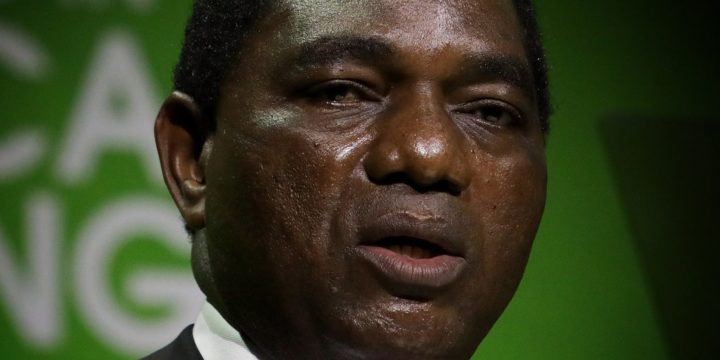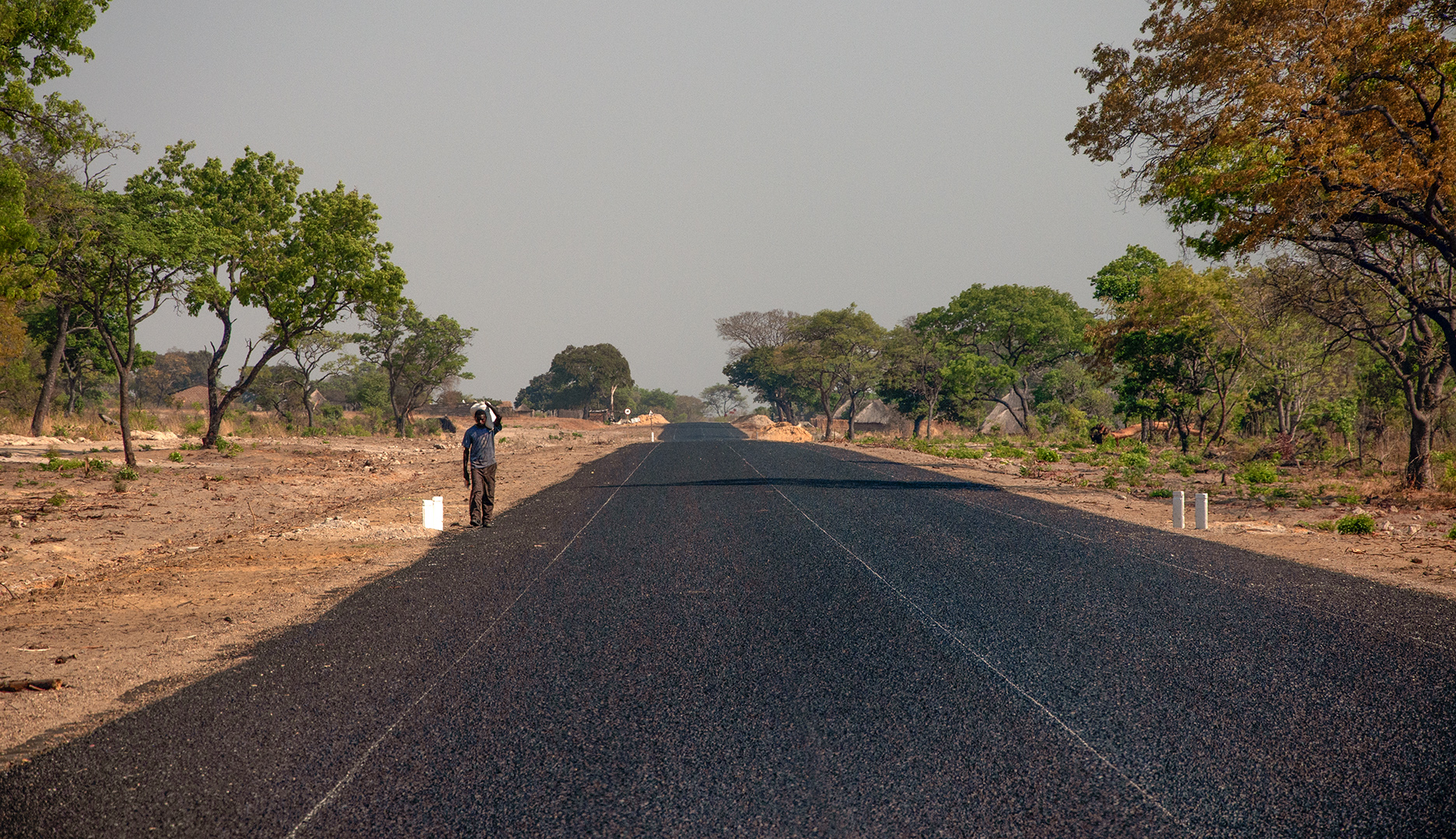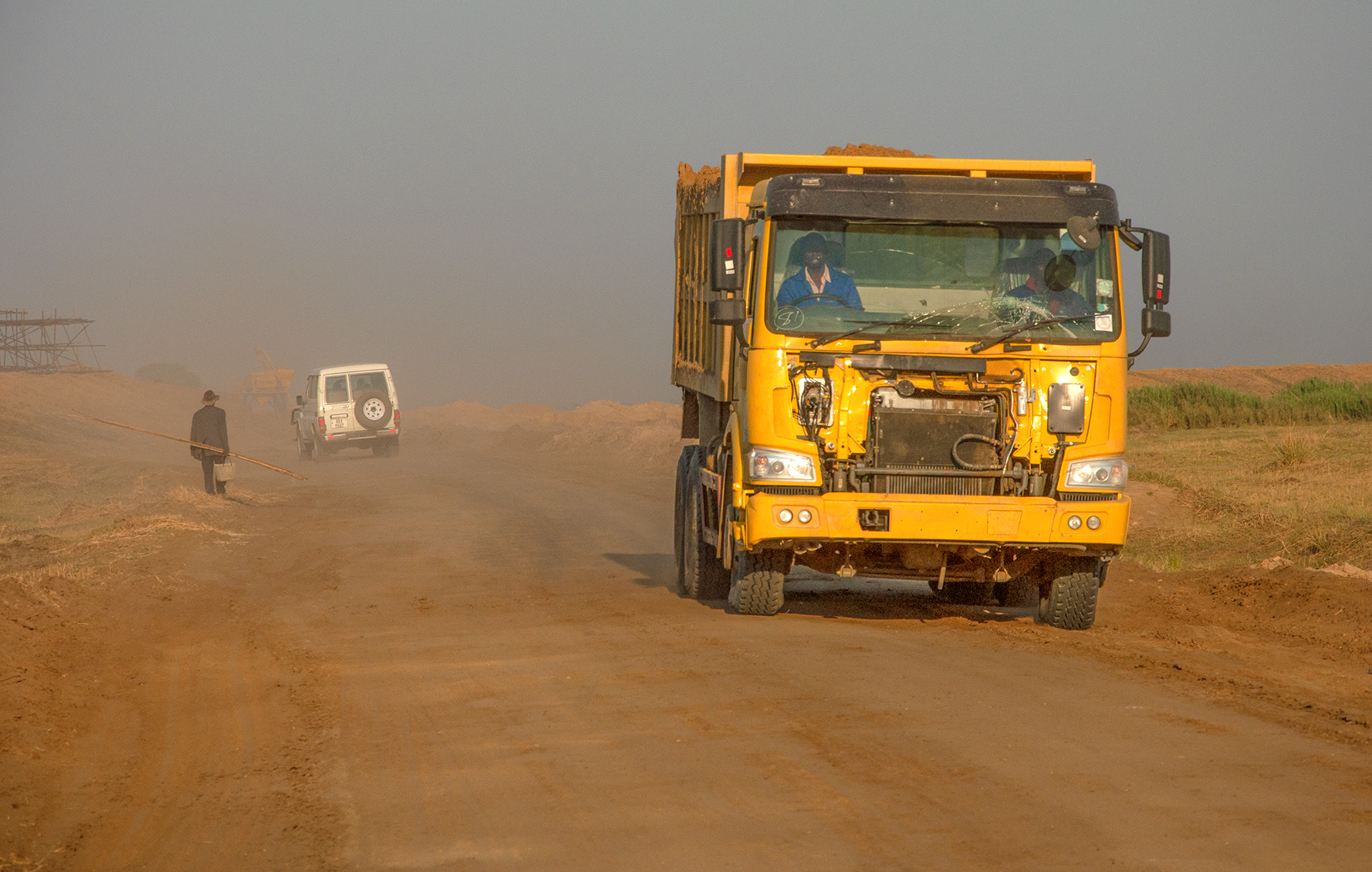ANALYSIS — AFRICA, UNSCRAMBLED
Hakainde Hichilema’s red alert to a spluttering world: You can’t eat democracy

If there is one place where the roadmap for a new world economic order can be set out it is Africa, which is unburdened by the more implacable strategic issues of, for instance, the South China Sea. China’s Foreign Minister, Qin Gang, has echoed American sentiments that ‘Africa should be a stage for international cooperation, not an arena for major-force rivalry’.
There was a plaintive urgency to the message from Zambian president Haikande Hichilema, one of the co-hosts of this week’s summit on democracy in Washington, DC. In an op-ed article published by Bloomberg, Hichilema wrote: “You cannot eat democracy.”
Developing countries are still reeling from the pandemic, the Russian invasion of Ukraine, inflation, and interest rate hikes by central banks.
Hunger and pain are being felt in the African street and a debt crisis threatens to overwhelm the economies of heavily indebted African nations. Sixty per cent of low-income countries are in or near distress, according to International Monetary Fund Managing Director Kristalina Georgieva, 25 of them in Africa.
“Human rights may sustain the spirit,” writes Hichilema, “but not the body. Particularly in young democracies like mine, governments must deliver economically if they are to retain the people’s consent.”
Zambia has a very specific problem. In November 2020, under president Edgar Lungu, it became the first African country to default on its debt repayments. After he was elected in August 2021, Hichilema took over a nation saddled with unsustainable obligations.
Hichilema blames reckless borrowing and profligate corruption for gutting the economy. “When my predecessor took power, debt stood at 32% of gross domestic product. By the time he left, it had ballooned to 120%.”
Many of the new loans — at least $6-billion since 2012 — were from China.
They have been defended as investments in infrastructure, but the contracts were opaque and made without considering how they would be repaid. Projects financed by the Export-Import Bank of China were negotiated directly with government departments with the loans going straight to Chinese contractors.

A section of a Chinese-constructed road near Sesheke. A 2017 World Bank study found that Zambia paid twice the African average for road construction on per kilometre basis. (Photos: Tony Weaver)
Contract costs were inflated to accommodate kickbacks for officials and intermediaries. A 2017 World Bank study found that Zambia paid twice the African average for road construction on a per-kilometre basis.
“Perversely, the debts run up by an autocratically disposed predecessor are stymying a democratic government’s provision of economic security for its citizens,” complains Hichilema.
When he came to power, Hichilema put a hold on contracts that had been doled out by the Patriotic Front government. The Lusaka-Ndola Dual Carriageway, for instance, was originally awarded to a Chinese company for $1.2-billion but will now be constructed by another Chinese company, Avic International, for almost half that amount.
Hichilema has bent over backwards to reassure investors, making good with major mining companies such as Canada’s First Quantum and India’s Vedanta Resources which had been stuck for years in debilitating legal battles with the government.
“Zambia has undertaken reforms in anti-corruption, transparency, and management of public funds. These difficult and potentially unpopular measures are required to restore credibility,” writes Hichilema.
Zambia has been seeking debt relief through the G-20 Common Framework, but talks have dragged on for some time. When US Treasury Secretary Janet Yellen visited Lusaka in January and accused China of slow-walking the talks she was met with angry protestations from the Chinese Embassy in Lusaka.
The sticking point is that China is demanding that if they are to “take a haircut” on their loans so too should other lenders such as the IMF and World Bank. The counterargument is that these are lenders of last resort with very low-interest rates, so they have already had their buzz cut.
Making the debt burden affordable would be a massive step towards recovery and bringing in investment, which is why Lusaka is growing impatient.
“The International Monetary Fund says the impasse poses a threat to the economy,” writes Hichilema. “I would argue it is also a threat to our democracy.”
Zambia could represent a more systemic challenge for China, hence the hesitation in setting a precedent. Sebastian Mallaby, writing in the Washington Post, describes Xi Jinping’s Belt and Road Initiative as “an international infrastructure splurge” that rapidly turned China into the world’s largest creditor to developing nations, accounting for nearly 50% of these loans.
“Initially, this looked like a genius Chinese move to win friends and influence people,” writes Mallaby. “Now that economic conditions have soured, free-flowing Chinese loans have created the conditions for debt crises in several emerging nations.”
As relations darken between China and the US, there is more than a whiff of gloating at China’s discomfort. John Kirby, a White House spokesman, said this week as vice president Kamala Harris was making her way to Ghana, Zambia and Tanzania that African leaders are “beginning to realise that China isn’t really their friend. China’s interests in the region are purely selfish, as opposed to the US.”
This one-upmanship goes against the grain of American protestations that the aim of its diplomatic charm offensive in Africa is not to make African countries choose between superpowers.
It is becoming clear that the biggest obstacle to heading off the economic crisis is antagonism between the two economic superpowers. A solution to the Zambian debt crisis is, of necessity, going to require all creditors to agree to significant debt reduction.
China needs to be a party to any deal but so does the US, which under the Biden administration has reclaimed its leadership role in the IMF and the World Bank.
“How the US and China are able to combine economic competition with the need for cooperation is going to require considerable strategic ambition and skill,” Tharman Shanmugaratnam, chair of the Monetary Authority of Singapore, told the China Development Forum this week.
If there is one place where the roadmap for a new world economic order can be set out it is Africa, which is unburdened by the more implacable strategic issues of, for instance, the South China Sea. China’s Foreign Minister, Qin Gang, has echoed American sentiments that “Africa should be a stage for international cooperation, not an arena for major-force rivalry.”
Hichilema has called for a “swift and comprehensive mechanism to replace today’s ad hoc, slow, and messy process. Without reprieve, many democracies will face existential pressure from the people. There is a danger that widespread dislocation and instability will follow.”
From Paris to Tel Aviv to Nairobi and Dakar we are seeing unrest which, though it has a political face, reflects undercurrents of global economic dislocation and crisis.
“We cannot simply parrot lines about how democracy is good for citizens,” says Hichilema. “It must be felt. Democracy is delicate. We cannot let debt damage it in the tumult.” DM



















 Become an Insider
Become an Insider
Comments - Please login in order to comment.